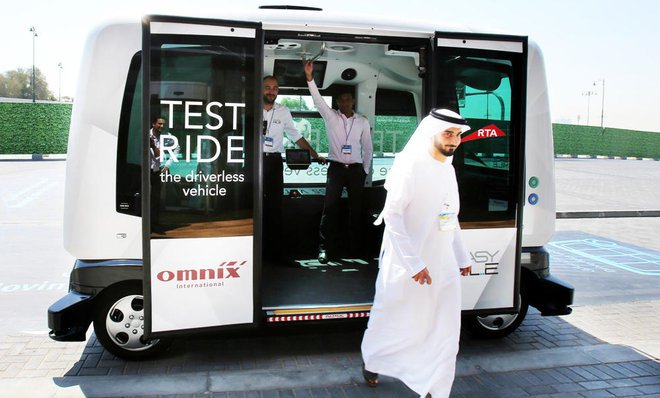
GCC needs new technologies for transportation: Report
Due to global political and economic uncertainties the Gulf Cooperation Council (GCC) needs to adopt a structured technological framework to overcome challenges facing transportation systems, said a report.
The report prepared by Strategy& highlighted the challenges facing the GCC countries.
1) As oil prices continue to fluctuate, GCC governments are cutting investments and can no longer justify spending freely on transportation infrastructure projects.
2) The region suffers from significantly higher rates of death from road accidents than international benchmark leading to economic losses equivalent to 2.5 percent to 4.5 percent of the gross domestic product (GDP) among GCC states including non-fatalities.
3) Transportation carries steep environmental costs with emission levels far higher than the world average of 1.03 tons of carbon dioxide per capita (5.59 in Qatar, 4.12 in Saudi Arabia, 3.58 in Kuwait, 3.49 in the United Arab Emirates (UAE), 3.16 in Oman and 2.44 in Bahrain).
Commenting on these challenges, Dr. Ulrich Kögler, partner at Strategy& in Dubai, said: “As the GCC population grows and urbanization continues, governments have little choice but to upgrade their transportation systems. The wealth of existing and emerging new technologies can significantly help facilitate this process. Dubai is already taking measures to adopt more technologies into its transportation infrastructure, having recently announced plans to convert 25 percent of the emirate’s total number of passenger trips to autonomous by 2030.”
According to the report, capitalizing on innovative technologies requires a four-part framework:
1) Regulate: GCC governments need to build the correct regulatory foundation by reviewing their current operating model and setting clear policy objectives and priorities to promote and rapidly deploy these new technologies
2) Pilot: Evaluate the potential benefits by conducting pilot programs to test new technologies, potentially in conjunction with private-sector partners.
3) Build: Put the underlying infrastructure in place, including physical infrastructure (such as roads that can support autonomous vehicles, charging stations for electric cars and facilities for greener maritime fuels) along with an IT backbone capable of handling the increased flow of information and analytics tools to derive insights from the data.
4) Incentivize: Use incentives to encourage both customers and service providers to adopt these technologies. In the realm of commercial logistics, GCC countries are investing to become major logistics hubs. Yet to be globally competitive, they need to become more efficient and cost-effective for traders.
Stressing the importance of embracing more technologies, Fadi Majdalani, partner at Strategy& in Beirut said: “Governments should encourage experimentation by staying on top of developments in other markets, taking the best of what works elsewhere, and applying it to the unique needs of their markets.
In a bid to reduce car emissions, the report added, automobile manufacturers are making huge strides in electric powertrains; such cars could comprise 25 percent to 50 percent of the overall market by 2040, according to Bloomberg.
GCC governments should prepare the ground for the wide adoption of electric cars, incentivize their use, and potentially even build a local industry around electric vehicles.
@Arabnews


























